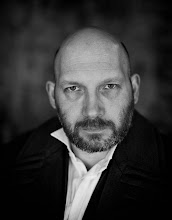
As I have written elsewhere, on bylines and indeed on this very page, I am an unashamed and unabashed writer of science fiction and fantasy. (Fair enough, more fantasy than science fiction these days but the point is still valid).
Better and more accomplished writers than I have, in the past, penned extremely well reasoned arguments about the validity of SF & F as literature rather than simple escapism. Certainly since the 1960’s with the birth of the New Wave, speculative fiction has consciously adopted many of those literary devices either popularized or developed by the modernists and postmodernists.
The validity of the speculative form can be seen time and time and again in the work of writers such as Jeanette Winterson, Margaret Atwood, Michael Chabon, Martin Amis, Iain Banks and Will Self (although both Winterson and Atwood – or their publishers - have repudiated the SF tag, perhaps fearing alienation from mass audience and critics alike).
At its heart, modern speculative fiction has the capacity to study the both the human and inhuman condition in a way which more mainstream literature remains unable to do. For instance – and to use some old and much worn tropes – climate change, overpopulation, the rise of the virtual rather than actual society all belong to SF, although they are increasingly finding their way into not only mainstream literature, but also the actual world.
The tropes of fantasy (particularly of the heroic kind) are increasingly finding their way into the mainstream as well – particularly with writers such as Steven Pressfield, Conn Iggulden, Robyn Young and Simon Scarrow – where the swashbuckling aspects of the genre are written against historical backgrounds (backgrounds that writers of unashamed fantasy have been plundering for years to add verisimilitude to their more fantastic works).
Could it be that the much hoped and longed for breaking down of the literary barriers is actually beginning to happen?
Sadly, the answer is probably not. The publishing ghettoes are as firmly entrenched as ever they were, the readers of Historical Adventures (for lack of a better expression) are frequently indifferent to their more fantastical cousins and the success ‘non-sf’ speculative novels owes little to their SF veneer.
At its best speculative fiction can hold a mirror up to the world: sometimes that reflection is dark and distorted, sometimes it is bright and shining. At its best it can be the equal of any ‘serious’ literature and encapsulate aspects of humanity that, again, literary fiction can sometimes struggle to capture.
Equally it can be bloody good fun both to read and to write (issues of the blank page to one side). For these reasons and more I am and remain an unashamed and unabashed writer of science fiction and fantasy.
Better and more accomplished writers than I have, in the past, penned extremely well reasoned arguments about the validity of SF & F as literature rather than simple escapism. Certainly since the 1960’s with the birth of the New Wave, speculative fiction has consciously adopted many of those literary devices either popularized or developed by the modernists and postmodernists.
The validity of the speculative form can be seen time and time and again in the work of writers such as Jeanette Winterson, Margaret Atwood, Michael Chabon, Martin Amis, Iain Banks and Will Self (although both Winterson and Atwood – or their publishers - have repudiated the SF tag, perhaps fearing alienation from mass audience and critics alike).
At its heart, modern speculative fiction has the capacity to study the both the human and inhuman condition in a way which more mainstream literature remains unable to do. For instance – and to use some old and much worn tropes – climate change, overpopulation, the rise of the virtual rather than actual society all belong to SF, although they are increasingly finding their way into not only mainstream literature, but also the actual world.
The tropes of fantasy (particularly of the heroic kind) are increasingly finding their way into the mainstream as well – particularly with writers such as Steven Pressfield, Conn Iggulden, Robyn Young and Simon Scarrow – where the swashbuckling aspects of the genre are written against historical backgrounds (backgrounds that writers of unashamed fantasy have been plundering for years to add verisimilitude to their more fantastic works).
Could it be that the much hoped and longed for breaking down of the literary barriers is actually beginning to happen?
Sadly, the answer is probably not. The publishing ghettoes are as firmly entrenched as ever they were, the readers of Historical Adventures (for lack of a better expression) are frequently indifferent to their more fantastical cousins and the success ‘non-sf’ speculative novels owes little to their SF veneer.
At its best speculative fiction can hold a mirror up to the world: sometimes that reflection is dark and distorted, sometimes it is bright and shining. At its best it can be the equal of any ‘serious’ literature and encapsulate aspects of humanity that, again, literary fiction can sometimes struggle to capture.
Equally it can be bloody good fun both to read and to write (issues of the blank page to one side). For these reasons and more I am and remain an unashamed and unabashed writer of science fiction and fantasy.


Right there with you James.
ReplyDeleteRaise the flag and fight the fight!
ReplyDeleteI'm living out in the literary hinterlands, but I just ain't interested in being "normal" or "mainstream". Boring.